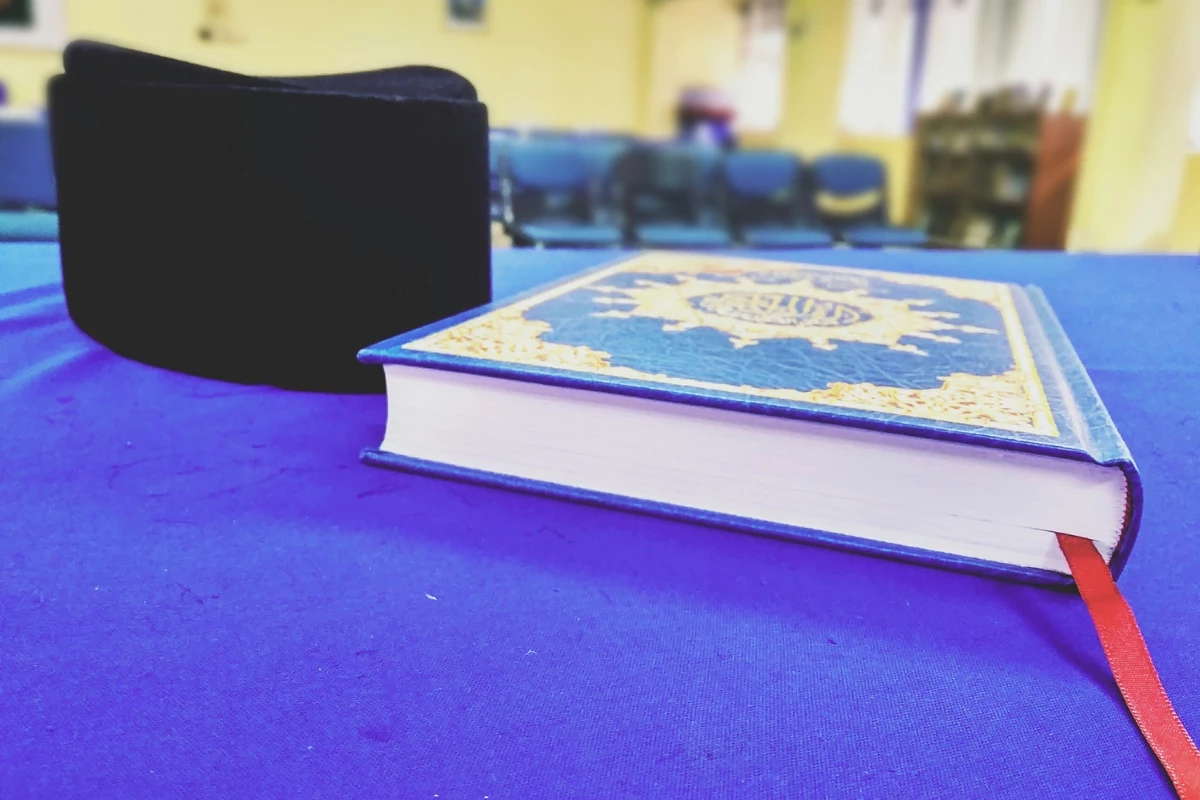 The Quran is the godly e book that courses the lives of Muslims round the world. One of the maximum pivotal factors of know-how and tasty with the Quran is its right enumeration. This is where Tajweed comes in. Tajweed refers to the set of rules that govern the correct pronunciation and articulation of Arabic letters while reading the Quran.However, Online Quran Islam Academy is then to guide you every step of the way, If you’re looking to learn Quran and Tajweed online.
The Quran is the godly e book that courses the lives of Muslims round the world. One of the maximum pivotal factors of know-how and tasty with the Quran is its right enumeration. This is where Tajweed comes in. Tajweed refers to the set of rules that govern the correct pronunciation and articulation of Arabic letters while reading the Quran.However, Online Quran Islam Academy is then to guide you every step of the way, If you’re looking to learn Quran and Tajweed online.
In this blog post, we will explain the significance of learning Tajweed, how it enhances your Quranic enumeration, and how our online Quran and Tajweed courses can help you achieve mastery.
What’s Tajweed?
Tajweed( تجويد) is an Arabic term that means to” make better” or” ameliorate.” In the environment of Quranic enumeration, Tajweed involves following specific rules and ways to gasp the Arabic letters with perfection. Tajweed ensures that the enumeration is clear, melodious, and regardful of the sacredness of the Quranic textbook.
Why is Learning Tajweed Important?
- Correct Enumeration The Quran has been saved in its original form, and reciting it duly is pivotal. Learning Quran and Tajweed ensures that you gasp each word with its intended meaning.
- Spiritual Connection When you recite the Quran with proper Tajweed, your enumeration is more meaningful and important. It creates a stronger spiritual connection with the words of Allah.
- Avoid Mispronunciation Some Arabic words in the Quran may change meaning if mispronounced. Tajweed helps you avoid similar crimes, icing that the substance of the communication is maintained.
- Beautiful Enumeration Tajweed brings beauty to your enumeration. The meter, air, and inflow of the Quran come alive when read rightly, making your listening experience more pleasurable.

Why Learn Quran and Tajweed Online?
Online learning of the Quran and Tajweed has grow to be a famous and effective alternative thanks to technological improvements. Then are the crucial benefits of online literacy
1. Flexible Schedule
Our online Quran and Tajweed courses are designed to fit into your busy schedule. Whether you’re a working professional or a pupil, you can learn at your own pace, from the comfort of your home.
2. Learn from good Teachers
At Online Quran Islam Academy, all our preceptors are endured, certified, and professed in tutoring both Quranic enumeration and Tajweed. You’ll admit individualized attention, helping you progress briskly and more effectively.
3. Access to Interactive literacy Tools
Our platform offers interactive assignments that include visual aids, audio recordings, and practice exercises. This allows you to learn the rules of Tajweed in a practical and engaging way.
4. Accessible and Accessible
No matter where you’re in the world, you can pierce our courses. All you need is an internet connection, and you’re ready to begin your trip to learn Quran and Tajweed online.
Course figure Learn Quran and Tajweed Online
Our online Quran and Tajweed courses are structured to insure you master each aspect of enumeration at your own pace. Then’s a quick look at what each course position entails.
Course position motifs Covered Duration
| Course Level | Topics Covered | Duration |
|---|---|---|
| Beginner | Introduction to Arabic Alphabet, Basic Tajweed Rules, Simple Surahs | 4-6 weeks |
| Intermediate | Advanced Tajweed Rules, Correcting Common Mistakes, Medium Surahs | 6-8 weeks |
| Advanced | Mastering Pronunciation, Detailed Tajweed Rules, Long Surahs | 8-12 weeks |
freshman Course
In the freshman course, you’ll start with the basics of the Arabic language and the rules of Tajweed. You will learn how to duly gasp Arabic letters and read simple Quranic verses.
Intermediate Course
For those who formerly have a introductory understanding, the intermediate course delves deeper into the rules of Tajweed, helping you correct common miscalculations and ameliorate your enumeration of medium- length surahs.
Advanced Course
The advanced course is designed for scholars who want to perfect their enumeration. You’ll concentrate on learning complex pronunciation rules and applying Tajweed rules to longer, further intricate surahs.
Why Choose Online Quran Islam Academy?
At Online Quran Islam Academy, we’re devoted to helping you ameliorate your Quranic enumeration. Then’s why we’re the stylish choice for learning Quran and Tajweed online
- Expert preceptors Our good preceptors are largely educated in both Quranic enumeration and Tajweed, furnishing you with the stylish literacy experience.
- Individualized Attention We offer one- on- one classes to insure you get the attention you need to succeed. Our preceptors are committed to your progress.
- Affordable and Flexible We offer competitive pricing and flexible literacy schedules to suit your requirements. You can start learning at any time!
- Comprehensive Curriculum Our courses cover everything you need to know about Tajweed and Quranic enumeration, icing you come an expert in both areas.
- Interactive literacy Platform With our stoner-friendly online platform, you can pierce live sessions, practice exercises, and recorded assignments anytime you need them.
Conclusion Start Your trip to Learn Quran and Tajweed Online Today
Learning to read the Quran with Tajweed is a deeply satisfying trip, and at Online Quran Islam Academy, we’re then to guide you every step of the way. Our courses are designed to help you master both the enumeration and the meaning of the Quran, icing that your spiritual practice is as profound as it’s beautiful.
Are you ready to begin your trip to learn Quran and Tajweed online? Enroll moment and start learning the sacred art of Quranic enumeration with expert guidance from our pukka preceptors.






Holy Book of Islam » Online Quran Islam Acadmey
[…] Muslims regard the Quran as the most significant miracle of Prophet Muhammad. […]
Learn Quran With Tajweed Online: Expert Classes
[…] Access to qualified teachers: Learn from certified Quran instructors […]
What Is The Holy Book Of Islam? Understanding The Quran
[…] What Is The Holy Book of Islam, known as the Quran, is the central religious textbook of the Muslim faith. But what exactly is the Quran, and why is it so important to over 1.8 billion Muslims worldwide? In this comprehensive companion, we’ll explore the Holy Book of Islam, its history, structure, and significance in the lives of Muslims. We will also bandy how you can consolidate your understanding of this sacred textbook through online Quran classes. […]